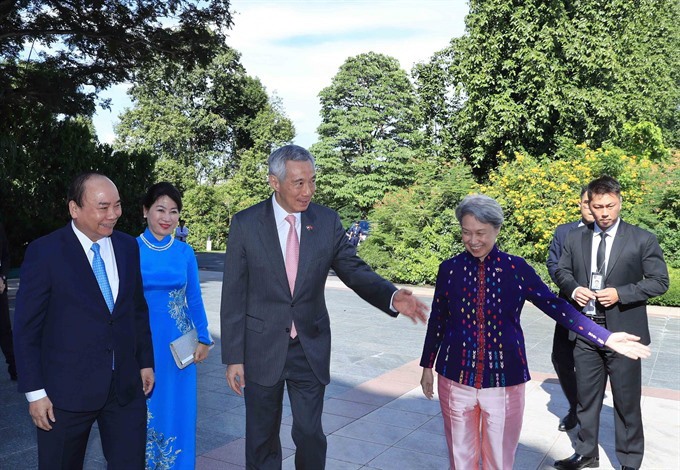The ASEAN Smart Cities Network (ASCN), including Viet Nam’s three largest cities, will enable Southeast Asia to sustainably develop its cities, further optimise the region’s burgeoning internet economies.

The ASEAN Smart Cities Network (ASCN), including Viet Nam’s three largest cities, will enable Southeast Asia to sustainably develop its cities, further optimise the region’s burgeoning internet economies, and elevate ASEAN’s international relevance, according to an HSBC report.
Ha Noi, HCM City and Da Nang will be part of the ASCN proposed by Singapore, as announced by Singaporean PM Lee Hsien Loong during a recent official visit to Singapore of Vietnamese PM Nguyen Xuan Phuc.
As part of the concept note, released by the ASEAN secretariat, the two governments will develop a platform to share best practices, link member cities with private investment, and secure funding from multilateral funding institutions.
Danielle Walsh, HSBC’s global head of client digital coverage, said Southeast Asia’s approach to Smart Cities was world-leading.
“The formation of the ASCN means that ASEAN’s smart city initiatives will become greater than the sum of its parts and catapult the region into the upper echelons of Smart City advancements globally,” she said.
The construction of Smart Cities means building urban areas that integrate information and communications technology to improve city operations in everything from traffic flows and infrastructure development to energy and water conservation.
The development of ASCN and smart cities in general across Southeast Asia comes in response to increased urbanisation underway in the region which is placing significant strain on cities’ infrastructure, climate control measures, and basic sanitation of its people, said the report.
About 49 per cent of the region’s population live in urban areas. Rapid urbanisation means that between 2015 and 2030, about 100 million people in ASEAN are expected to migrate from the countryside to cities.
Jennifer Doherty, head of innovation for HSBC Global Liquidity and Cash Management, said: “Urbanisation brings growth and prosperity to economies, companies and individuals, but it also presents its own set of challenges too, including congestion, crime, pollution, inequality and high house prices.”
“ASEAN countries are individually recognising these issues and are working towards a sustainable future through bespoke Smart City initiatives, but if the ASEAN integration ideal is to be realised, then these country programmes need to be linked,” she said.
Various themes fall into the smart-cities umbrella, including improvements in “hard” infrastructure like energy, transport and water, smart building, healthcare, mobility and security.
ASEAN $200 billion potential
The ASCN is a step forward in the modernisation of Southeast Asian cities enabling them to increase their efficiency, and promoting greater standardisation of technologies across the region, according to the report.
This is vital to the digitisation of the regional internet economy which is forecast to hit US$200 billion by 2025.
An area of acute focus will be in smart mobility, particularly in autonomous, connected, electric and shared modes of transportation such as electric vehicles, and ride and car sharing.
Walsh of HSBC’s global head of client digital coverage, said: “ASEAN is on the cusp of an all-encompassing digital transformation with technology promising to offer a new way of life and better experiences for residents of smart cities. Accordingly, the business opportunities arising from the smart cities network are enormous.”
“The transition in smart mobility – along with smart energy, infrastructure and healthcare – will be transformational for these cities over the next decade, and companies need to be on the right side of the innovation equation,” he added. — VNS





